Blockchain-Powered Healthcare Development Services
Drive Business Growth with Our Blockchain in Healthcare Development Services
Drive Business Growth with Our Blockchain in Healthcare Development Services
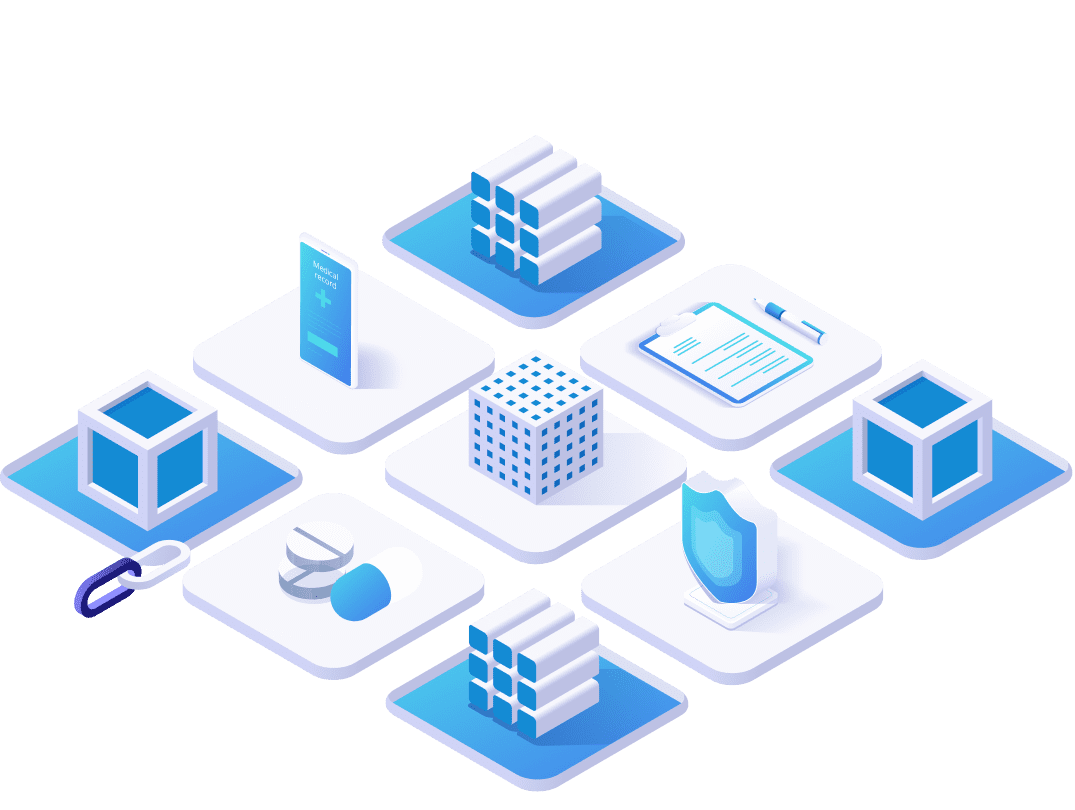
“Very rarely does infrastructure technology create the hype that blockchain currently has.” Emily Vaughn Bailey, director of blockchain product development at Change Healthcare
Our blockchain experts implement blockchain and smart contracts to transform healthcare systems and services, including supply chain, electronic health record (EHR) management, clinical trials, and more. We develop secure and advanced health information exchange (HIE) models for private, permissioned, and public networks
With blockchain, healthcare providers can create immutable end-to-end patient records, including disease records, lab evaluations, treatments, wearable data, and more. It assists providers in delivering a better healthcare experience
When integrated with APIs (application programming interfaces), a healthcare blockchain solution makes EHR interoperability a secure, reliable, and transparent process. This process comes with a provision for permissions for access levels
When a network agrees upon smart contract execution as per pre-defined terms, it automatically and instantly verifies and adjusts claims. Also, as the blockchain network involves no central authority, the possibility of fraud remains negligible
A blockchain can enable healthcare providers to monitor end-to-end supply-demand lifecycles. Pharma companies can upload products on the blockchain. Here, they can trace their touchpoints from the origin point to end consumers with transparency and immutability
Blockchain healthcare solutions can enable users to have complete control and access to data. Additionally, users can manage how they share it with others. They can assign access permissions to enable authority about who can query and write their data on the blockchain
Implementing blockchain with AI and IoT provides real-time access to data. It enhances engagement for stakeholders and provides customized treatments as per patient preferences. These technologies can enable embedded healthcare intelligence
We develop clinical trial systems with web-based interfaces to facilitate users to execute trial-related smart contracts on a blockchain network. As a form of distributed ledger, blockchain systems serve as a durable and transparent log of various transactions. It increases the trustworthiness of data collection during clinical research among researchers, regulators, and drug companies alike. Also, it empowers patients to become fully aware of research partners
Clinical research and information exchange
IP (Intellectual property) management and R&D (research and development) asset interactions
Consent-powered patient data management
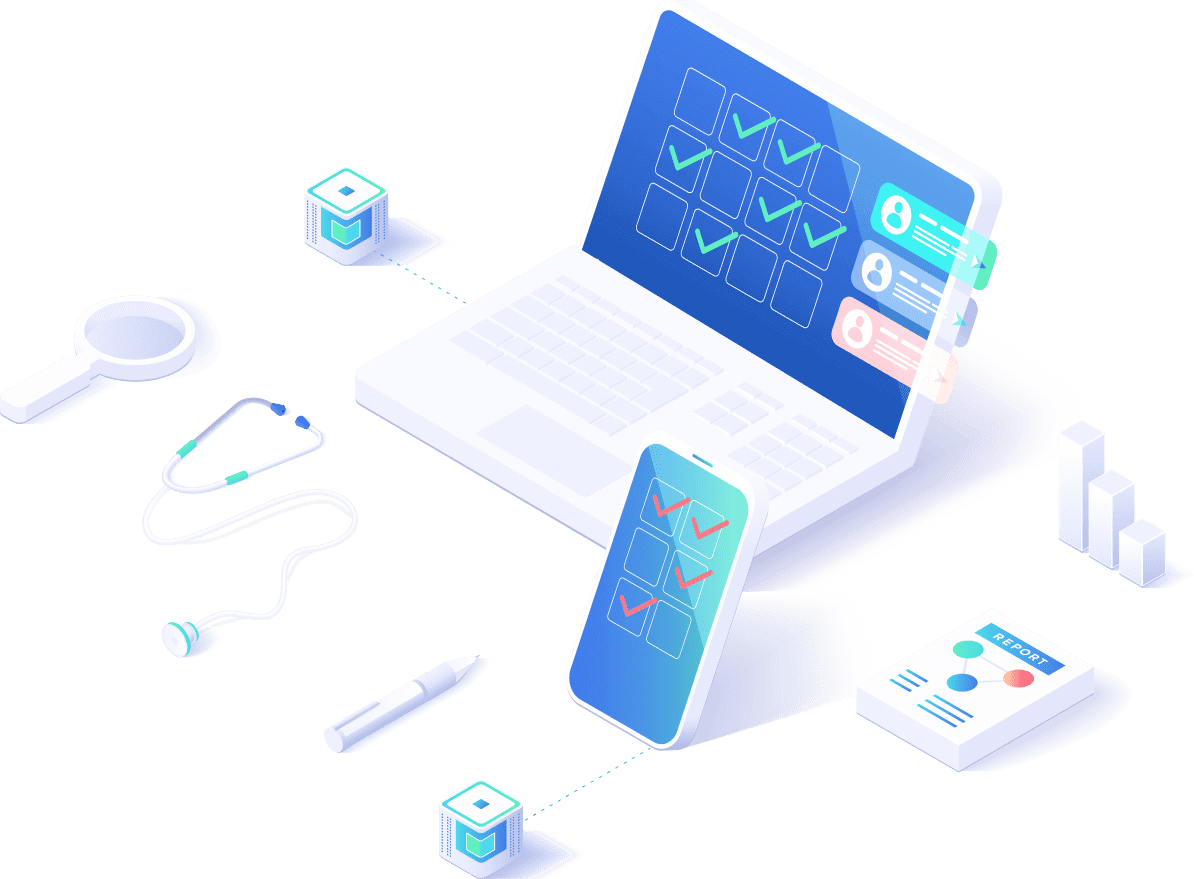
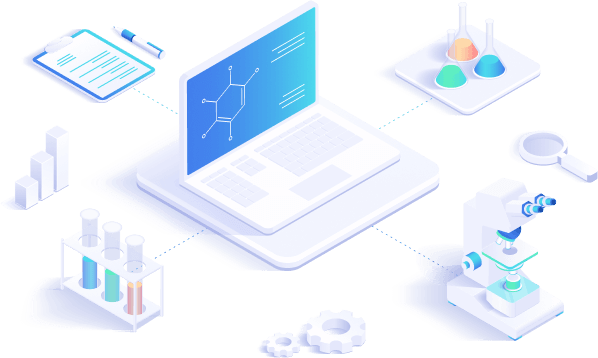
We provide blockchain healthcare solutions for supply chain management to enable stakeholders to track healthcare devices across device lifecycles. From manufacture to decommissioning, they can trace a device’s current location, location history, manufacturer, reseller, serial number, and more. Blockchain technology in medicine overcomes the risk of counterfeit or unapproved drugs with integrated GPS (Global Positioning System) and chain-of-custody
Automated serialization and geo-tagging process
Regulatory-compliant track and trace systems
Drug counterfeiting and fraud detection systems
Our blockchain solutions for healthcare insurance detect damages, contact repair providers, and automatically send claims to an insurance provider. We develop new processes, security methods, and new business models for insurance providers. They can utilize these solutions to address increasing customer expectations for customized services, privacy, inventive products, and competitive pricing from insurers
Automated end-to-end healthcare claim management
Automated underwriting, policy insurance, and other activities
Flawless KYC (know-your-customer) processes for claimants and beneficiaries
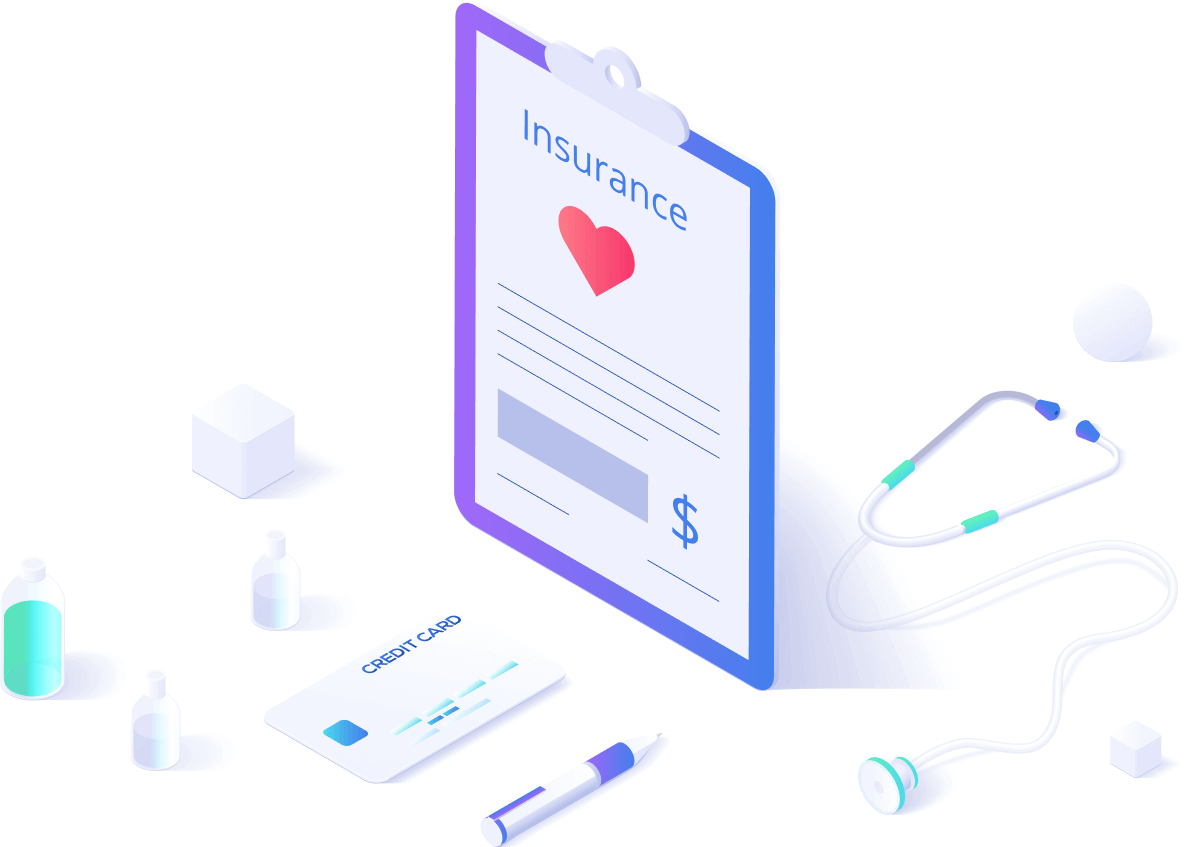
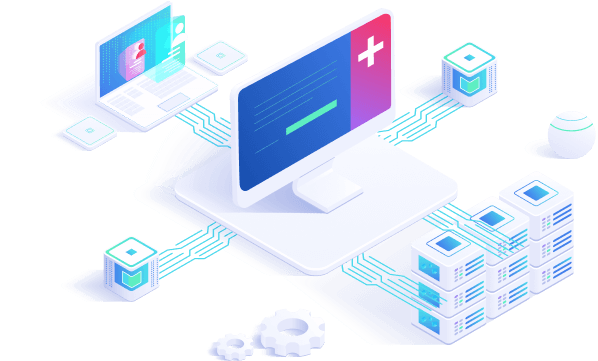
Blockchain technology in telemedicine allows physicians to keep a wider patient history by compiling information from treatments, tests, and more. Blockchain helps in deploying medical IoT applications as decentralized applications on the network. With a plethora of IoT devices available today, providers can access conditions and attain a holistic view of a patient's condition. With more comprehensive data diagnosis, prediction, and prevention of illnesses are strongly improved
Protected by private keys
Only shared with trusted parties
Third-party access to personal data
We build EHR management software and solutions with blockchain that place patients in control of their records. These blockchain solutions for healthcare give patients the right to consult any medical entity with a single and accurate information. Fragmented, siloed accounts of patients generate inefficiencies and inaccuracies in the healthcare system. For a shared, smart solution to healthcare, we, at Oodles, build healthcare blockchain solutions that enable the secure exchange of patient data
Interoperable electronic health records
Immutable information exchange across healthcare providers
Strengthened data consistency and security
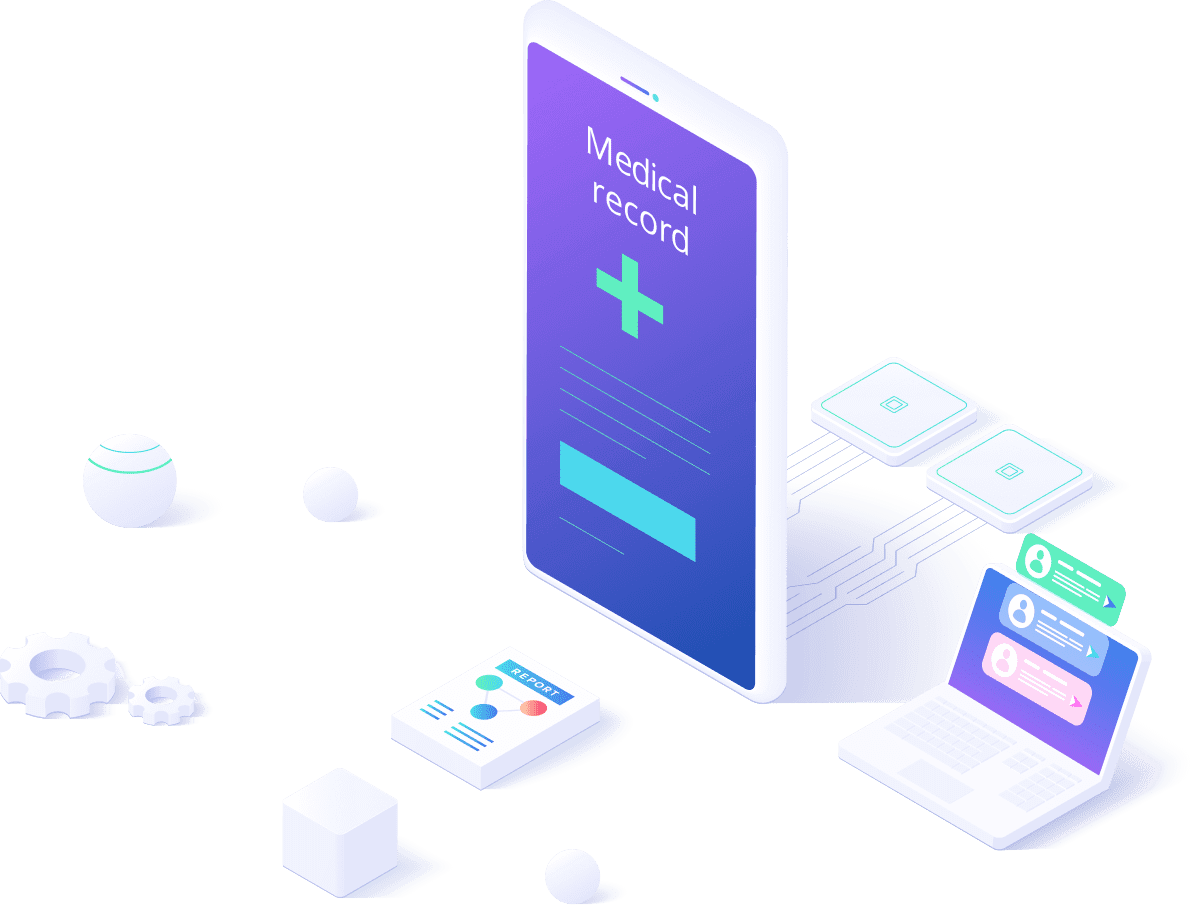
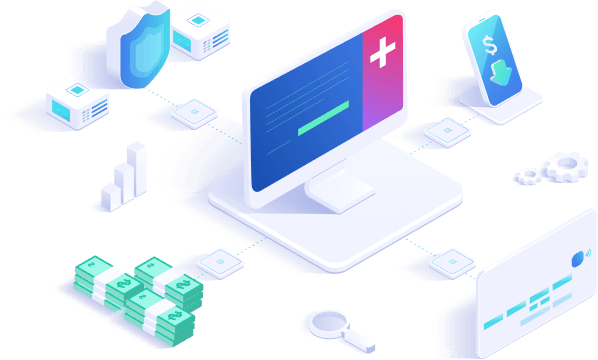
Smart blockchain contracts allow micropayments for particular patient actions. We develop these contracts to provide patients benefits for following a therapy schedule or sharing their clinical study results. Without a third party, they facilitate micropayments that offer a direct, trackable flow of transactions. Additionally, reward programs are available for patients who attend scheduled appointments and follow medical care plans. They eliminate the inability to verify information, paper-based, and lengthy processes
Gamification for encouraging healthy habits
Traceable incentivization for pre-defined health goals
Micro payment-for-performance for stakeholders
Regardless of the underlying technologies, security and regulatory standards remain linked to individuals and procedures. Immutability, security, and robustness are benefits of blockchain technology, although its limitations can also be those characteristics. Its usage must strengthen the compliance of healthcare organizations and market providers with existing protection standards, not undermine them
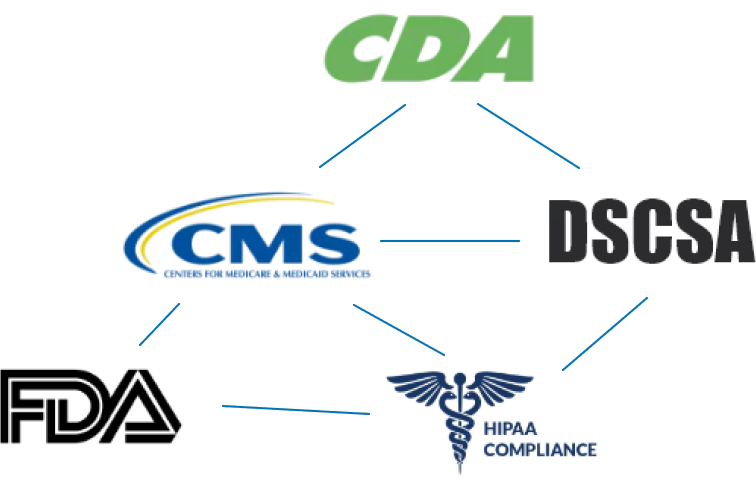
1
Requirement Analysis
2
Design and Development
3
Compliance and Integrations
4
Testing and Deployment










Blockchain in healthcare is a decentralized and secure digital ledger technology that stores and manages patient data and medical records. It enhances data integrity, privacy, and security by creating a tamper-resistant record of healthcare transactions. It makes it accessible to authorized parties and ensures transparency in the healthcare ecosystem.
Blockchain technology can have a profound impact on healthcare by addressing key challenges in the industry. It has the potential to enhance data security and streamline data sharing among healthcare providers. Additionally, it can improve patient record management, reduce fraud, and enhance the transparency and trustworthiness of healthcare transactions. These changes can lead to more efficient, patient-centered care.
Blockchain technology provides a robust network for storing sensitive data securely and thereby supports data privacy. Blockchain solutions for healthcare protect patients’ data cryptographically and make it extremely difficult for unauthorized parties to access or alter it. Its decentralized architecture, smart contract capabilities, zero-knowledge proof, and more enable patients to retain ownership and authority over their information.
Blockchain technology can transform the healthcare industry by improving data security, interoperability, and patient care. Here are some blockchain use cases in healthcare
Blockchain facilitates secure and interoperable patient record management. Patients have control over their medical data, and healthcare providers can access and update information with patient consent. It ensures accurate and up-to-date records.
Yes, the blockchain development team at Oodles can integrate blockchain with your existing healthcare systems. Since blockchain technology works with legacy systems, we can implement this technology to improve data security and interoperability.

By using this site, you allow our use of cookies. For more information on the cookies we use and how to delete or block them, please read our cookie notice.


Innovate with confidence!


